#martin saxby
Text
God's Own Country: A Happy Ending for Gay Film
In Yorkshire, northern England, 24-year-old Johnny Saxby lives with his father, Martin, and grandmother, Deirdre, and runs a family farm together. Johnny has to do endless farm work day in and day out, so in his free time, he often numbs himself with alcohol and sex. One day, a Romanian migrant worker, Gheorghe Ionescu, was hired by Martin to help with the busy lambing season. Johnny does not get along well with this quiet and handsome 27-year-old young man until one day he tackles Johnny to the ground and warns Johnny not to call him "gypsy" again. On the next day, they have a rough and passionate sex in the dirt and later gradually become closer. When Martin suffers a second stroke, Johnny realizes the responsibility of running the farm falls entirely on his shoulders. He asks Gheorghe if he can stay with him and maintain the farm together, but Gheorghe believes if they cannot redefine their relationship, this plan will not survive. Johnny then gets upset and drinks to excess and has a random sex with another man, which is found out later by Gheorghe, so Gheorghe leaves the farm with sorrow and anger. But in the end, Johnny brings Gheorghe back and Gheorghe moves into the house from the original caravan.
The above description is about the British film God's Own Country, written and directed by Francis Lee in 2017, which won the world cinema directing award at the 2017 Sundance Film Festival as the only UK-based production. This film is partly based on Lee's own experience, who is a gay people used to live in Yorkshire. As an uncommon gay film with a happy ending, God's Own Country expands queer media territory into the countryside and migrants. While God's Own Country presents a new perspective to view gay people, it also reinforces problematic narratives through its depiction of traditional masculinity, representation of migrant, and "normalization" of gay identity. With three main themes presented, this review post also discusses the connection between masculinity and gender performativity, migrant and intersectionality, and gay identity and homonormativity.

From the character setting, and storyline, to the environment, God's Own Country is permeated with a traditional and binary "masculinity". The protagonist, Johnny, is a young sheep farmer living in the Yorkshire countryside who often engages in binge drinking and furtive casual sex. When he finds the one he wants to stay with (Gheorghe), he messes up since he does not know how to deal with this romantic relationship. And when he tries to bring Gheorghe back, it seems very difficult for him to express his apology. The depiction of such character is easily connected to a kind of traditional "masculinity" that is unemotional, violent, strong, high self-esteem, etc. Or, to put it in another way, an aggressive young man lives in a wild farm who does now know how to start an emotional communication.
Judith Butler (2006) argues that "there is no gender identity behind the expressions of gender; that identity is performatively constituted by the very 'expressions' that are said to be its results" (p. 34). In other words, "our gender is our expressions and behaviours (rather than those expressions and behaviours being the result of some underlying gender identity)" (Barker & Scheele 2016, p.79). People's gender then is more like an expression that is believed to be appropriate and correct within their cultural environment rather than a fixed nature within their bodies. In this sense, the masculinity of Johnny is more like an "intelligible" way to perform within his condition - a young sheep farmer in the countryside. The "good" thing may be Johnny, as a gay man, is not depicted in a stigmatized or stereotypical way that happens in many shows, but its depiction seems to reinforce the binary understanding of gender.


youtube
God's Own Country was released in 2017, which coincides UK's attempt of withdrawing from the European Union. Gheorghe, as a Romanian migrant worker in the film echoes the issue of migrants in Britain. Both as gay men, the nation, race, and class of Gheorghe is quite different from that of Johnny. Such demographic factors are greatly influencing the way Gheorghe interacts with Johnny who is a white, work-class, native British. When they first met, Johnny called Gheorghe a "gypsy". Later when they are in the bar, a white racist there also deliberately teases Gheorghe because of his identity.
Intersectionality refers to the overlapping of social categorization and how it is linked to the interconnected oppression. Doty (1993) also argues that cultural factors such as "class, ethnicity, gender, occupation, education, and religious, national, and regional allegiances influence our identity construction" and "can exert influences difficult to separate from the development of our identities queers" (p. 5). Although Gheorghe's identity of being gay does not bring him too much direct discrimination in the film, his race and class affect how he interact with Johnny and other people (such as the white racist in the bar mentioned above). And Gheorghe's conflict with Johnny is raised due to his identity, i.e. how Gheorghe as a Romanian migrant worker has a romantic gay relationship with a white, British farmer.
Moreover, how the film represents Gheorghe and his relationship with Johnny is also problematic. "The formal axe around which the film functions is the act of looking and being looked at, in particular the suspicious staring of the foreign 'outsider' by the white 'insider'" (Williams 2020, p.77). That is to say, the presentation of a Romanian migrant is from the viewpoint of a white British man. Although Gheorghe as a migrant seems to be depicted as the "savior" of British white man Johnny, Gheorghe's intersectional identity is actually not fully represented but more portrayed as the support or supplement of the main white character. For example, it is Gheorghe who saves Johnny from the heavy workload and mental loneliness, and teaches him how to "love" someone instead of just having brutal sex.
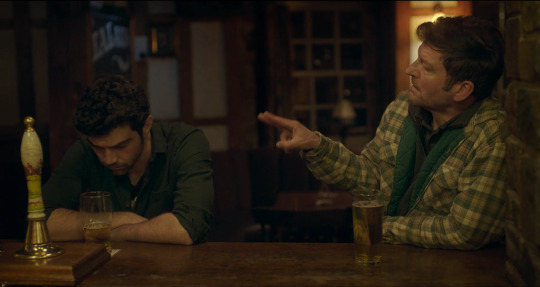
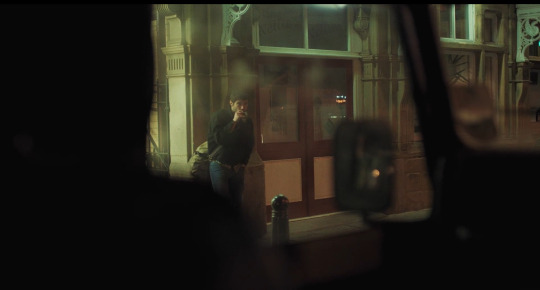
Unlike Brokeback Mountain (2005) or Boys Don't Cry (1999), queer characters do not struggle too much with their identity and social discrimination in God's Own Country. The gay identity of Johnny and Gheorghe seems to be very "natural" and "ordinary". Even when Deirdre, Johnny's Grandmother, finds a used condom in Johnny's room and realizes that her grandson may have sex with another man Gheorghe, she only emphasizes to Johnny that "he is only here to work". Johnny's family seems to accept their gay identity and relationship very well, or in another way, their gay identity and relationship are somehow "normalized" in the film. Furthermore, within their own relationship, Gheorghe is depicted as a gentle lover who is trying to tame his aggressive partner. And their relationship from the hostile beginning to the happy ending is very similar to traditional Hollywood romantic heterosexual films.
Homonormativity "is a politics that does not contest dominant heteronormative assumptions and institutions, but upholds and sustains them, while promising the possibility of a demobilized gay constituency and a privatized, depoliticized gay culture anchored in domesticity and consumption" (Duggan 2002, p. 50). In other words, although gay people may seem to be accepted and included in the mainstream or heteronormativity dominated system, they are actually framed and hidden under the heteronormativity and thus lose their identity. Although it may be good that the gay identity and relationship of Johnny and Gheorghe are treated as nothing special, the essence behind that may be the gay culture is depoliticized and thus loses its nature of being gay. Even gay couples may no longer be depicted as gay couples but heterosexual couples.
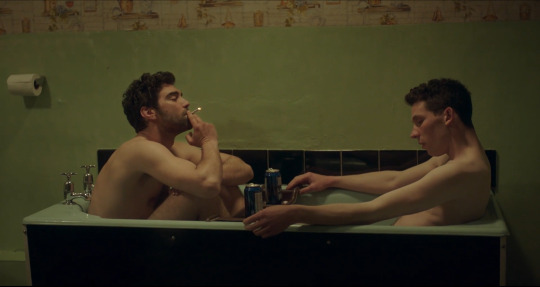
As an Asian, heterosexual college student, I may not be able to resonate with the film too much. Probably the scene where Gheorghe is discriminated against by a white racist can trigger some of the experiences around me. And although this film tells a story of a gay couple, the way this film puts their relationship yet is quite "familiar" to me, because of the last point I discussed above (homonormativity).
Originally, the explicit sex scene in this film makes me feel a little bit "awkward" and I feel like such scene is not very necessary. However, my knowledge in queer media studies makes me reconsider the role of sex in this film and I find that it is actually very "meaningful". Johnny used to be very aggressive in sex, but after the "tameness" of Gheorghe, Johnny gradually enjoys the touch and understands that there can be "love" (or emotion) in sex instead of just fulfilling the sexual needs. That is to say, the sex scene in this film actually sees the growth of a young man, the understanding of love, and the finding of oneself.

--- Miles
References
Barker, M. & Scheele, J. (2016). Section on Butler. In Queer a graphic history (pp. 73-83). Icon Books.
Butler, J. (2006). Identity, sex and the metaphysics of substance. In Gender trouble: Feminism and the subversion of identity (pp. 22-34). Routledge.
Doty, A. (1993). There's something queer here. In Making things perfectly queer (pp. 1-16). University of Minnesota Press.
Duggan, L. (2003). Equality, Inc. In The twilight of equality: Neoliberalism, cultural politics, and the attack on democracy (pp. 43-66). Beacon Press.
Williams J. (2020). Queering the cinematic field: Migrant love and rural beauty in God's Own Country (2017) and A Moment in the Reeds (2017). In Queering the migrant in contemporary European cinema (pp. 72-86). Routledge.
#QueerMedia#movie review#god's own country#gender performance#intersectionality#homonormativity#josh o'connor#alec secăreanu#Youtube
65 notes
·
View notes
Text
God's Own Country
Este é um filme sobre um jovem adulto chamado Johnny Saxby que vive e ajuda na fazenda da família junto com o seu pai e sua avó. O seu pai, Martin Saxby, está vivendo com as sequelas de um derrame e por causa disso o Johnny tem que fazer a maior parte do trabalho sozinho, até que o seu pai contrata um viajante romeno para passar uma semana na fazenda para ajudar com os serviços gerais e com as ovelhas.
Jhonny é um homem muito fechado e prático, eu não diria que ele é reprimido, pois quando ele quer ele consegue sexo com um homem que estiver “disponível” no momento. Ele frequenta constantemente o pub da cidade e sempre dá trabalho por ficar muito bêbado ao ponto de terem que carregá-lo de volta para casa.
O jovem viajante romeno se chama Gheorghe e é um homem muito habilidoso no que ele faz, tendo uma boa ética de trabalho. Ele aparenta ser mais sensível, até por ter uma ligação emotiva com seu país de origem e da sua antiga vida.
Enquanto o Johnny construiu vários muros para se proteger emocionalmente, o outro tem que lidar com a dureza da forma como o Jhonny lida com as coisas. Há pequenas nuances entre os dois que faz com que o Jhonny se abra mais para vida e se deixe ser tocado por outro homem de uma forma que talvez ele já não era tocado há muito tempo.
É muito crível e sensível a construção da relação dos dois. O filme nos mostra a realidade como ela é e nos mostra o comportamento de dois homens, diferentes, porém que tem que lidar com a masculinidade de cada um. Não deixa de ser um filme bonito, pois é acompanhado de autodescoberta, autocuidado e querer amar a si como o outro te ama, e existe beleza e humanidade em todas estas coisas.
God’s Own Country é um filme que te apresenta uma realidade e desenvolve uma narrativa sensível diante da dureza da masculinidade e da solidão que uma vida reclusa pode causar.
0 notes
Video
vimeo
The Space Between Us from Stuart Langfield on Vimeo.
A film about us and our f*****g phones...
--
Credits:
A film by Stuart Langfield
Producers - Marcy Paterson & Rosie Gallagher at MTP
Starring:
Tunde Martin
Rebecca Murphy
Jaylene Mbararia
Matt Cairns
He Wang
Caitlin Crawford
Sally Pritchett
Clarissa Woods
Director of Photography - Gavin White
Editor - Jennifer Mackie
Stylist - Lucy Proctor
1st AC - Michael Neal
2nd AC - Jordan Tibitt
Production Assistant - Alannah Nicholson
Colourist - Nadia Khairat
Composer - Giles Lamb
Special Thanks:
MTP, No Drama, You Are Here, Tartan Models, Saxby & Revell, I’ll Be Your Mirror, Flemington House
0 notes
Text
I didn't know John's dad was played by Professor Quirrel and now I feel attacked
26 notes
·
View notes
Text
New Arrivals
"There's room been made for this, so I expect things to keep."
His eyes flick up to meet hers, looking at a woman with lines pressed on her face, and grey woven in her hair, and a lifetime of care held in the hands wrapped around an old cup. "I think it will," Gheorghe says softly. He places his palm over hers, and pulls away. No one will know it but themselves.
(In which Nan makes room in her kitchen for cheese and Gheorghe.)
Here on my a03!
#god's own country#gheorghe ionescu#johnny saxby#in which i chase paper cuts#i saw the movie and i had FEELINGS#about gay farmers#and their nan#also cheese and martin because i like them too
9 notes
·
View notes
Text
God’s Own Country and Physical Touch
Touch is a huge, massive, really fucking important part of God’s Own Country. It’s a main aspect of the film, and most definitely a huge catalyst in Johnny being able to open up at all.
But it’s interesting to look at the way that touch is used by Johnny and Gheorghe, and who takes the lead or has control, how it’s expressed, things like that. So much of the film is body language, specifically touch, rather than verbal expression.
In the scene in the hut, touch is a way to get Johnny to open up. Gheorghe touching Johnny gently allows him to slow down, for once. And it’s the first time he experiences touch as a comfort, as something soothing and pleasurable that’s about the experience of actually being touched, rather than just fucking. The early morning scene introduces their sexual attraction and Johnny’s unacknowledged desperation for connection. But the scene in the hut is Johnny’s introduction to intimacy. And it’s Johnny being vulnerable in a way that he’s never been before, and he has Gheorghe to be gentle and guide him.
I think there is that obvious contrast between the blowjob scene and the scene in the hut: both Gheorge and Johnny are kind of frantic and physically tense in the first scene, both scared of the intimacy of actual sex. Johnny grabs Gheorghe’s arm and holds it to the ground to keep his hand away from touching him. It’s similar to the cattle trailer scene we see at the beginning of the movie. This entire scene is initiated and led by Johnny.
But the scene in the hut is initiated and led by Gheorghe. It’s Gheorghe who continually slows Johnny down. Exactly opposite to the previous scene, he deliberately places Johnny’s hands on his own body, deliberately encourages Johnny to touch him and encourages Johnny to enjoy being touched himself. Johnny starts to see touch and sex as something meant for connection.
This is going to sound weird, but I think it’s interesting to compare the scene in the hut to the scene in Scotland. In both scenes, Gheorghe is more or less the one in control. At least, he’s the one who’s in a more calm, stable state and he kind of has the ability to control where things go. But I think it’s interesting that in the hut scene, touch helps Johnny open up. As soon as he starts to break that internal barrier, he’s pushing into Gheorghe’s touch, kissing him, holding him. It’s a new and intense sort of intimacy. But in the scene in Scotland, when Gheorghe reaches for Johnny, he jumps back saying “Leave me! I’m all right.”
Again, this sounds odd, but I think it’s got a lot to do with that intimacy of touch. This is Johnny being intimate in an emotional way, but this time he’s talking. He’s struggling to communicate verbally (something none of the Saxby’s seem too great at) and I think he knows that if Gheorghe tries to initiate physical intimacy before he gets everything out that he wants to say, he’s not going to be able to say it. This last monologue is the most we’ve head Johnny say at one time without interruption. I mean, I assume they had more back-and-forth conversation that was sort of hinted at throughout, but this is like a proper monologue which is fairly unlike Johnny. The night at the pub was kind of a step backwards for him; deciding to go after Gheorghe is a massive step forwards, and making an effort to communicate is a huge part of that. Especially since Gheorghe seems to have been very gently encouraging verbal communication the whole time. Once Johnny is able to get that out, to make sure he’s communicated what he’s thinking and what he wants, Gheorghe in turn responds in a way that is more Johnny’s style of communication: the simple inside joke they’ve developed, and physical touch.
I think the two back to back scenes in the house and then in the caravan are also really important. The scene in the house is a sort of adorably lovestruck Johnny; but he’s definitely still learning what’s what. Once Dierdre leaves, the way he touches and kisses Gheorghe is affectionate and sweet and very, very eager, but it still seems to have that sort of frantic lust-driven lean toward just getting off. Gheorghe forces him to chill out, but I also think it’s interesting that this whole scene takes place in the house, which at this point is still Johnny’s turf, not Gheorghe’s. Once they’ve moved to the caravan, things slow down. Johnny’s being stubborn, he’s a little frustrated that he got shot down, but it quickly turns playful. I love his sort of bashful smile as he starts to relax, like he’s realized how ridiculous he was being and how sweet Gheorghe is being. The caravan is sort of Gheorghe’s turf, so he’s calling the shots again, sort of, forcing Johnny to slow down and feel something other than lust. But it’s still different from the scene in the hut; they’ve acquired more emotional and personal connection, beyond just the physical, so their touches seem to have more emotional intent.
Which segues nicely into another aspect I’ve been thinking about, which is touch as initiated by Johnny vs initiated by Gheorghe. In the beginning, the only time we see Johnny utilizing gentle touch in any way is with the animals, and even that is fairly clinical. But with people, he’s so distant. At first, any touch initiated by Johnny is purely sexual in nature. The trainee auctioneer at the beginning, obviously, but also with Gheorghe. He doesn’t initiate touch with Gheorghe except in the blowjob scene and the sex scene in the hut. And both of those, too, his attempts at touch are purely sexual: he goes straight for Gheorghe’s dick and bypasses anything else. The first time he touches someone gently is when Gheorghe slows him down. After that, most of the touches he initiates are still a little fast, a little too urgent, but he’s slowed down so much. Even in the scene in the hut, even when he’s broken through those barriers and allowed himself to touch gently, there’s a streak of frantic desperation, despite the fact that he has kind of slowed down a bit. Same with the scene in the house when Dierdre leaves the room; it’s gentler, more affectionate, but still so keyed up.
We see a sort of emotional parallel to Johnny’s connection to touch in his connection to the animals. The bit with the calf shows that Johnny cares, he cares a lot, but he has no idea how to express that or how to deal with it in a healthy way. It’s the same with touch. He cares, and once he’s experienced that gentle touch, he wants it, but he’s not sure how to express or navigate it.
From the beginning, Gheorghe is framed as a carer. His first touches are intimate, without necessarily being overtly sexual. There’s definitely a charge there, in the scene where he spits in Johnny’s palm, but I think initially it is on Gheorghe’s end an inclination to help. It’s also a really interesting nonverbal way to further test the waters. He knows from the earlier scene when he knocked Johnny down that Johnny’s all bark and no bite, and I think he kind of realizes Johnny’s sorta floundering. This scene where Gheorghe spits in Johnny’s palm is the start of a sort of physical connection. The blowjob scene is frantic and lustful, but there is also that moment where Gheorghe tries to initiate intimate touch and Johnny forces his arm away.
But I think what’s amazing about Gheorghe is the way he gets Johnny used to touch. That first scene in the hut, when he breaks down Johnny’s barriers and gets him to start opening up to intimacy is huge. Every moment Gheorghe introduces a new form of touch, Johnny reacts by literally pushing against it; Gheorghe puts his hand to Johnny’s cheek and Johnny’s hand to his own, and Johnny responds by gripping his face more than caressing it, before eventually relaxing. This goes on for a little while in the scene until Johnny starts to let those walls crumble. But after that, Gheorghe’s main form of touch is small, gentle, casual touches. He spends that scene in the hut where they’re talking about their lives gently stroking Johnny’s leg. On the ride on the ATV he’s got his hands on Johnny’s hips. Any time he’s touching Johnny, his fingers are just very gently stroking whatever skin he’s touching. Even in the pub, having that serious conversation about the relationship while working on the farm, they’re elbow to elbow. And obviously there’s the hospital scene. But these little, casual touches are so different from the intense sexual encounters between the two of them, because those touches are so gentle and small and neither of them try to acknowledge them. Gheorghe starts to normalize gentle, casual touch for Johnny.
Not only that, but I think by the time Martin is in hospital, Johnny has gotten used to little touches, but only around then has he started to really acknowledge the comfort they hold. Gheorghe touches Johnny’s hand, and it makes him feel a little better, like someone is there for him and cares about him. So he tries it with an unconscious Martin, touching his finger, and Martin’s breathing changes. I think that moment is actually a huge catalyst for his intense reaction at Martin not being able to be well again later; there was that moment, that moment that sort of gave Johnny hope and a connection, and all that is lost when Dierdre reveals that Martin isn’t going to get better, and that he almost died, and that Johnny is going to have to be responsible for the farm from here on out.
Because Johnny’s physical intimacy with Gheorghe, his connection both physical and emotional, helps him to learn to enjoy and take comfort in touch, which also helps him to start opening up emotionally to himself and to Gheorghe and to his family. But that shock that Martin isn’t going to get better has Johnny scared and upset and reverting back to his old coping mechanisms. He has opened up so much. But now, in the face of this upsetting news, he’s too vulnerable. He feels like he has to go back to the way he used to be, all clammed up and walled in and protected from feeling anything but anger and using anonymous sex as a way to distance himself from intimate and vulnerable touch.
Once Gheorghe is gone, we see Johnny realize what he’s missing, what he’s done. The scene where he puts on Gheorghe’s jumper is so sad and yearning and lovely, but what really got me is the way Johnny starts off rubbing the weave of the jumper and ends up caressing and holding his own hand as if it were Gheorghe’s.
But Gheorghe being gone doesn’t mean all of Johnny’s walls are back up. In fact, I think they start crumbling even further when he realizes how badly he fucked up. He’s frustrated and sad and upset but also for the first time, he starts being gentle, with the animals, with Gheorghe’s jumper, with his family. The bathtub scene isn’t just an illustration of Martin’s sudden helplessness and vulnerability; it’s also an illustration of Johnny’s newfound awareness of others’ emotions, and his newfound ability to touch in a way that is comforting, gentle, and helpful, rather than rough or impersonal.
And the scene in Scotland is the first time we see Johnny accept physical comfort without pushing away at any point, without pushing back first. There is the “Leave me, I’m fine” line, but like I said above, I think he knew that he wouldn’t be able to get out everything he had to say if he accepted that comfort, and I don’t think he was emotionally ready for it until he knew he had expressed everything. Because it is also the first time we see Johnny really making an effort to talk about it as well. But when Gheorghe kisses him, and then simply holds him, it’s the first time we see them in such close, gentle touch that isn’t obviously pre- or post-sexual act.
I love that the last three physical touches in the film are so drastically different. In Scotland, Johnny’s being held and comforted by Gheorghe; he’s even rocking him a bit as the camera pulls back. It’s intimate in a sort of romantic way, but very much in a way that portrays their connection and how much solace Johnny gets from Gheorghe. Then on the coach, Johnny puts his head on Gheorghe’s shoulder in his sleep and Gheorghe wakes only to lean his head against Johnny’s. It’s a moment where they’re vulnerable together; not necessarily emotionally, but to the world in general. They’re sleeping together quite literally, in public, leaning on one another, just getting comfort out of simple contact. And I don’t think the Johnny of the early part of the film would lean on another person, even in his sleep. And lastly, the way Gheorghe puts his arm around Johnny’s shoulders as they head back inside. It’s very much a gesture of support. When Johnny turns around, he’s visibly upset, worried; maybe about the future of the farm, or his father, or their relationship, who knows. But Gheorghe sees this and puts his arm around Johnny and they both know they’re in this together and they’ve got each other to lean on.
The important part of touch in this film isn’t necessarily sexual. We know Johnny is perfectly comfortable with his own sexuality. The importance of touch is about intimacy, and letting people in, and learning to give and accept comfort. Johnny and Gheorghe’s intimacy starts with care and moves on to sex and returns in the end to care, with an added emotional layer. But Johnny learning to receive care and comfort then allows him to give care and comfort to his family, and to open up enough emotionally to actually communicate his thoughts and feelings and desires in the end. Johnny in the beginning is hurting and angry and distant, unwilling to allow himself connection or vulnerability. Johnny in the end is still hurting, still upset and frustrated, but the difference is that now he’s able to be vulnerable, he’s able to connect with others on an emotional and physical level. He’s able to communicate his feelings and accept love and comfort in return.
#god's own country#god's own country meta#um wow this is a lot longer and a lot more than i anticipated
35 notes
·
View notes
Text
Incidental Audience
Summary: Gheorghe looks back briefly at his childhood and the memories that bring one where they need to be. A ficlet about the past, the future, and love. Also on AO3...

"Moors are a stage for the performance of heaven. Any audience is incidental." - Ted Hughes
Ani was feeling a bit skittish that morning. Gheorghe could tell instantly; he could tell when Ani was out of sorts. He knew how all the sheep felt at any given moment as he walked amongst them, especially the ewes. He knew when Camilla was in a bad mood, when Gabi was being bloody indignant. He knew them all—their quirks and tempers. He recognized them as they ran through the vast space of the open moors. Each one unique to him.
Ani was his favorite. Everyone on the farm knew that. She was a good dairy ewe.
"There, there," Gheorghe murmured to her in Romanian as he patted her side. "Relax."
He took a teat in his hand and continued milking. Usually, Gheorghe would use the milking stations when making the cheeses, but for the house, he preferred to milk by hand. It made the process and the end product, more special. Intimate.
It had been almost two years since Gheorghe first arrived at Saxby Farm, and the rebirth within the farm, the entire Saxby clan—and even himself—had been remarkable. The farm began to prosper under the guidance of Johnny and Gheorghe, with Martin and Deirdre finally standing behind Johnny. They had come to accept his ways both on the farm and beyond. Of course, the journey there had been complicated, and often exhausting, but they finally all understood each other.
Gheorghe could hear Deirdre humming in the living room as he entered the house, a small pail of milk in hand. Martin sat next to her, watching as she iron.
"Making your cheese?" she called out after the door shut. "Don't you dare use my best tea towel for your slop."
It had become a thing with them. She teased Gheorghe, teased him as a form of affection.
"Which is the best? They all look terrible," Gheorghe shot back with a wry grin.
"The cheek on you!"
Gheorghe smiled, a tiny thing, and placed the pail on the counter.
The formula was the same. The steps never changed. Gheorghe knew that if he warmed raw sheep's with a little bit of salt to 85 degrees and added lemon juice, he'd get curds. Those curds, in turn, would be pressed into a cheesecloth, tied and hung, draining and draining still, suspended over a whey bowl. He knew that in three hours, he would have cheese. This was a fact. It would never change no matter how much someone may want it to change. You would never get chocolate or jam from this process; you always got cheese. There was comfort in that—comfort in absolute certainty, comfort that Gheorghe loved to share with others.
His father taught him how to make cheese. It was never a man's job or a woman's job; it was just a job. Gheorghe's father, Ionut, taught him many things. He felt that softness in men was underrated. Gheorghe's grandfather was not unkind, but he never showed any affection. Ever. This was something that was never lost on Ionut.
"I'd rather my son be caring and respectful than violent, stupid or aloof," Ionut had said as he and Madalina watched the infant Gheorghe sleep.
All Ionut ever wanted was to attend the university and maybe become a professor, but his father's farm had other plans. Ionut found he didn't mind so much. One day, he met Madalina. She was a young school teacher who joked often and smelled of lavender. They fell in love and soon had Gheorghe.
"There is pride to be had in the tending of your flock, in helping the ground provide for your family. Milk, cheese, meat, family… what else is there?" Ionut would say.
Young Gheorghe would run through the fields, among the sheep, feeling as though he'd never want to leave the farm. Ever.
+
The first time Johnny tried Gheorghe's cheese, Gheorghe didn't ask him to eat it. He simply placed the soft cheese on the table, took a slice of bread, and spread a thick layer upon it. It had been a while since Gheorghe made cheese, but it was a good batch. The sweetness of cheese danced with the buttery, briny scent. Gheorghe chewed slowly as he carefully watched Johnny spoon a tiny bit onto his bread. He sniffed at it cautiously, then took a small bite.
The look of surprise quickly flashed across Johnny's face, and he instantly scooped some more cheese, with rehearsed nonchalance, onto his bread. The two ate quietly, each one smiling into their slice.
Gheorghe's relationship with both Deirdre and Martin took a while to develop. Johnny had made it clear that Gheorghe was there to stay, a part of the farm for good. They would look after, not only the sheep but each other. Much like Johnny eating Gheorghe's cheese, Deirdre and Martin looked at Gheorghe cautiously and approached slowly. Eventually, they took him in and trusted him, as they'd finally done with Johnny.
+
During the first few months at the farm, after Gheorghe had returned for good, Johnny and Gheorghe would whisper secrets to each other no one else dared to hear, under the safety of the dead of night. It was during those moments just after Johnny and Gheorghe would finish exploring one another, while the serotonin and endorphins still pulsed throughout their bodies, that they would slowly come down together and let anything at all tumble out of their mouths.
"Tell me somethin'," Johnny would ask while he rested on his stomach, head turned on his folded arms, looking at Gheorghe, who was on his side, stroking Johnny's hair.
"What do you want to know?"
"Anything."
"Anything?"
"Aye, anything."
"When I was a small boy," he said, "I would hide from my parents and run into the barn behind our home. I felt that it called to me—that I should be there. Sometimes I would carry our cat, Silviu, so we would both get into trouble. She would try to jump away from me, and I would laugh. I would wander away from the barn and lie on my back on the grass. I would look up at the trees and wonder where they end… when they end. Could I climb up one and see? Everything smelled like sunlight and happiness. And then it all changed."
Johnny moved closer and gently pressed his lips to Gheorghe's, slowly parting them, licking into his mouth.
+
It is in the moors of the Pennine Mountains that Gheorghe feels like he did as a child. That wonder, that sense of the sublime—all at once frightening and awe-inspiring—comes back to him there.
He used to think that a view that beautiful could not be touched by anyone, not really, so it presented itself as a form of loneliness. One would look out at the landscape and feel a profound sense of inexplicable loneliness. As he sat on a thin blanket, overlooking the roiling skies, eating cheese and bread and meat with Johnny, Gheorghe now knew that was wrong. That he was wrong. They are all an incidental audience to such loveliness once they open themselves up to it.
Johnny smiled at Gheorghe, as he helped himself to some more bread and cheese. Johnny never comments on the cheese but merely eats it heartily—both knowing that he loves it. All of it.
#god's own country#god's own country fic#god's own country fanfiction#god's own country fanfic#gheorghe ionescu#johnny saxby#my FF#introspection#childhood#nature#falling in love#why did they cut the cheese scene from the movie?#soft!gheorghe
17 notes
·
View notes
Photo
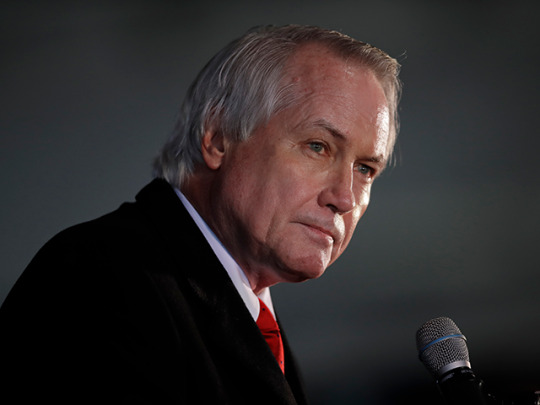
Records: Lin Wood Has for Decades Voted for, Donated to Democrats Including Barack Obama and David Perdue’s 2014 Opponent
Georgia-based attorney Lin Wood is getting lots of attention for urging supporters of President Donald Trump to break with the president and not vote for GOP Sens. David Perdue (R-GA) and Kelly Loeffler (R-GA) in the upcoming January 5 runoff elections.
Wood’s public comments run counter to President Trump’s own public statements and wishes, as the president has repeatedly urged his supporters to support Loeffler and Perdue and is heading to Valdosta, Georgia, on Saturday to rally with the GOP senators. Wood’s comments are also in line with what top national Democrats are pushing for, as Breitbart News has reported a national anti-Trump Democrat Super PAC called “Really American PAC” is running billboards carrying a message nearly identical to what Wood is saying.
While Wood made his comments purportedly as a self-described supporter of Trump, while donning a red “Make America Great Again” ball cap, the real story here is that Wood is by no means a Republican and there is no record in Georgia of him ever voting for President Trump—in 2016 or in 2020—in the Republican primaries. While Wood did vote in the 2020 and 2016 general elections in Georgia—there are no records in Georgia of him pulling a GOP primary ballot in 2016 or 2020, the two years President Trump was on the ticket. Ironically, in both the 2020 and 2016 general elections, state records show that Wood voted absentee—by mail—in Georgia, part of the same system he is now railing against.
In addition to Trump himself, Vice President Mike Pence is making a second trip to Georgia later this week to campaign for Loeffler and Perdue and the president’s eldest son Donald Trump Jr. has been vocal in his support for them as well.
That’s what is so interesting about these people claiming to support the president’s interests telling Georgians not to back the president’s candidates for Senate in the runoffs. But maybe it is not so complicated when looking at the voting history and political donation history of the chief instigator of this narrative, Wood. Wood has long supported Democrats in the state of Georgia, and now with U.S. Senate hanging in the balance he has positioned himself as a leading voice of the MAGA movement. Republicans currently have at least 50 seats in the Senate going into next year and Democrats currently have at least 48 seats.
If Democrats were to take both of these runoff elections and tie the Senate 50-50 next year, then assuming Democrat presidential candidate Joe Biden emerges victorious from President Trump’s election results challenges the Democrats would then take control of the upper chamber of Congress. While Trump is still pursuing challenges, every state in which he is contesting the results has certified a win for Biden–making the president’s battle even more of a long shot. In a scenario where Biden emerges victorious, and the Democrat candidates Jon Ossoff and Rev. Raphael Warnock win these Senate seats in Georgia’s runoffs, that would mean now Sen. Kamala Harris (D-CA)–who would be Vice President of the United States in that situation–would cut ties in the Senate and now Minority Leader Chuck Schumer (D-NY) would become the majority leader and control the floor and committees of the Senate.
Maybe that’s why Wood, who backed Democrats for years until Trump, is urging Trump supporters to throw the election to the Democrats. Georgia records show that Wood has voted in every general election dating back to 2000, in person in 2000, 2002, 2004, 2006, 2008, 2010, 2012, and 2014—and then via absentee or mail ballot in 2016, 2018, and 2020. State records also show that Wood has not voted in a Republican primary since 2004, but did request Democrat ballots in the 2006, 2008, 2010, and 2018 primary elections in Georgia. That means that even when Trump was president, in the 2018 midterm elections, Wood requested a Democrat primary ballot in Georgia and voted for Democrats in the primary in the state while Trump was universally backing Republicans there. Wood also did not request primary ballots of either party, the records show, in 2016 or 2020–when Trump was on the ballot in the GOP primary.
Wood also has a long history of donating to top Democrats’ presidential, gubernatorial, senatorial, and congressional campaigns. While he did shift a little bit during the Trump era and made some donations to Trump and some congressional Republicans and to the Republican National Committee, per Federal Election Commission (FEC) records, Wood has long backed Democrats for federal office and especially for Georgia offices. Donations to Democrat Party politicians from Wood over a decade plus total more than $40,000, and span from as far back as 2004 through as recently as 2018.
Campaign finance records show that Wood has donated thousands and thousands of dollars to top Democrats like former President Barack Obama, who he gave $2,300 to in 2008 over two separate donations. In 2004, Wood funded the Democrat presidential campaign of then-Sen. John Edwards (D-NC) with $500 split over two separate donations.
It is not just Democrat presidential candidates like Obama and Edwards that Wood supported. He also previously backed Perdue’s 2014 Democrat opponent Michelle Nunn, giving her $100 in Sept. 2014. He gave $500 to Georgia Democrat Senate candidate Jim Martin on Nov. 10, 2008, when Martin had forced a runoff with then-GOP Sen. Saxby Chambliss (R-GA)—meaning that there at least two other general elections than this one for U.S. Senate in Georgia where Wood has financially backed Democrats over Republicans. This demonstrates that he has a long history of supporting Democrats against Perdue in particular but also against Georgia Republicans in U.S. Senate races in the state.
He also backed Georgia Democrats in several other races for state and federal offices. According to FEC records, in Sept. 2014, Wood gave another $100 to another Georgia Democrat then-U.S. Rep. John Barrow (D-GA).
But state records in Georgia show that while Trump has been president, in 2017 and 2018, Wood has donated thousands and thousands of dollars in Georgia to state Democrats—funding the opposition to the president in the state. He gave $2000 over three separate donations in 2018 to Ken Hodges, a Democrat judge on Georgia’s appeals court, for his campaign. Back in 2010, Wood gave another $4,200 over several donations to Hodges.
He also in June 2018 gave $2,600 to Democrat state Sen. Zahra Karinshak.In 2017, Wood gave a whopping $12,600 to Georgia Democrat gubernatorial candidate Stacey Evans. Wood worked with Evans as an attorney in private practice, and Evans would go on to lose the Democrat primary for governor in 2018 to Stacey Abrams, who lost to now GOP Gov. Brian Kemp in the 2018 general election.
Wood donated another $2,500 to Evans in November 2015, $2,300 more in March 2010, $2,400 more back in May 2009, and in December 2009 another $100.In state-level races back in 2006, records show Wood gave Martin—the 2008 Democrat U.S. Senate candidate he would later back in that race against the GOP’s Chambliss—another $1,000 over two separate donations.In 2014, he donated $5,000 to state Sen. Jason Carter—a Democrat candidate for governor of Georgia—per state records.
He also, in 2009, donated $500 to former Democrat Gov. Roy Barnes when he launched a failed comeback bid against GOP Gov. Nathan Deal for the governor’s mansion.In 2009 and 2010, Wood also donated over two separate donations $1,000 total to a leftist group called “Georgia Win List.” The group’s website says its goal is to “change the face of power in Georgia by electing pro-choice Democratic Women In Numbers.
” In other words, the group runs counter to President Trump’s stated pro-life position and is pushing abortion on Georgians by electing as many Democrats as it can.
1 note
·
View note
Text
I’m looking up the actors in God’s Own Country. Deirdre Saxby is Madam Pomfrey and her son Martin is Professor Quirrell and now I can’t undo the headcanon that Professor Quirrell is indeed the son of Madam Pomfrey.
5 notes
·
View notes
Photo

365 Day Movie Challenge (2019) - #160: God’s Own Country (2017) - dir. Francis Lee
Streaming now on Netflix, God’s Own Country is a thoroughly moving drama that I was invested in from beginning to end. Back in 2017, the film was advertised as Yorkshire’s Brokeback Mountain, but making such a comparison does a disservice to the distinctly British flavor of Francis Lee’s storytelling. Lee brings both romance and compassion to the tale of Johnny Saxby (Josh O’Connor), an angry young man in the classic kitchen sink sense.
Johnny leads a double life, helping his father Martin (Ian Hart) and grandmother Deirdre (Gemma Jones) with raising and selling lambs from their rural farm while hiding the fact that he has anonymous sex with young men in town. Johnny dulls the pain of repression by staying out all night and getting drunk at the local tavern, but he is forced to change his pattern when Martin hires another worker, Romanian immigrant Gheorghe Ionescu (Alec Secareanu), to assist the family during lambing season. Although at first the men interact like oil and water, their mutual attraction becomes undeniable when they travel to the far edges of the farm to repair part of the fence. While sharing the same sleeping quarters in that isolated area, Johnny and Gheorghe have a pair of sexual encounters that give Johnny the first inkling that he and another man could build a relationship.
As the Bard once wrote, the course of true love never did run smooth. The elation of being with Gheorghe is not always enough to counteract the destructive tendencies that Johnny acquired from years of shame and self-loathing. Conflicts push the men to the brink, compelling Johnny to reassess what’s most important in his life. After years of maintaining a tough exterior, Johnny learns the worth of simple yet powerful displays of emotion: intimacy, empathy, honesty.
Joshua James Richards’ cinematography captures both the cold, harsh atmosphere of the farmland and the warm glow of Johnny and Gheorghe‘s romance as it develops from lust to love. In wordless moments, images provide insight into the characters’ feelings, like the sight of Deirdre’s big blue eyes as she stares out the kitchen window at the grandson who has been keeping secrets from her, and the tenderness with which Martin thanks Johnny for washing his back after the older man has had a debilitating stroke. Thanks to immensely effective filmmaking and acting, God’s Own Country represents a new wave of gay cinema, one in which love stories don’t need to be defined by tragedy in order to be impactful. To quote a Tumblr user’s synopsis, “Brokeback Mountain (2005, dir. Ang Lee): through the transformative power of sheep farming, two men find out that being gay is sad. God’s Own Country (2017, dir. Francis Lee): through the transformative power of sheep farming, two men find out that being gay is happy.”
#365 day movie challenge 2019#god's own country#2017#2010s#francis lee#josh o'connor#ian hart#gemma jones#alec secareanu#netflix#joshua james richards#gay cinema#gay film#gay films#gay movies#lgbtq+ cinema#lgbtq+ film#lgbtq+ films#lgbtq+ movies#lgbtq cinema#lgbtq film#lgbtq films#lgbtq movies#romantic drama#romantic dramas#british cinema#british film#british films#british movies#world cinema
2 notes
·
View notes
Photo
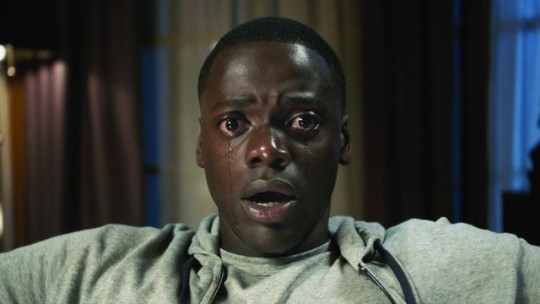
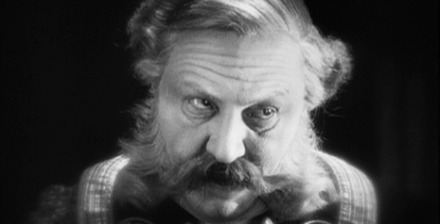
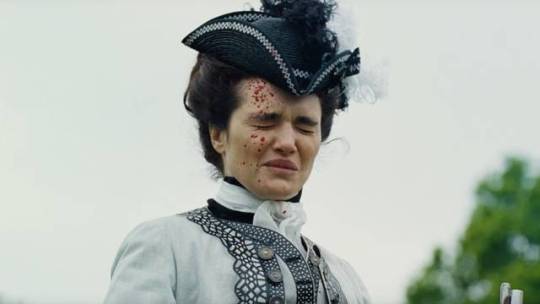
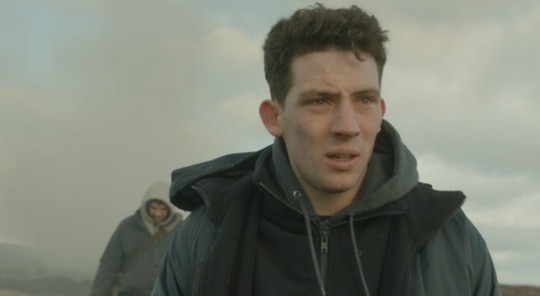
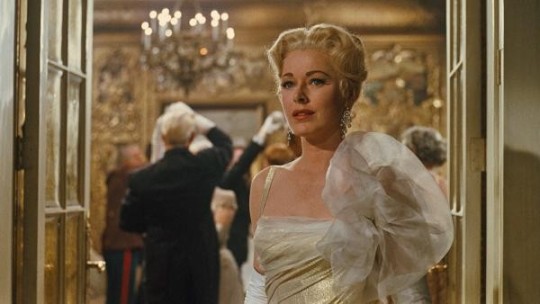
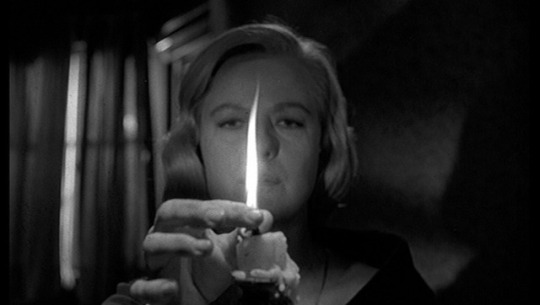

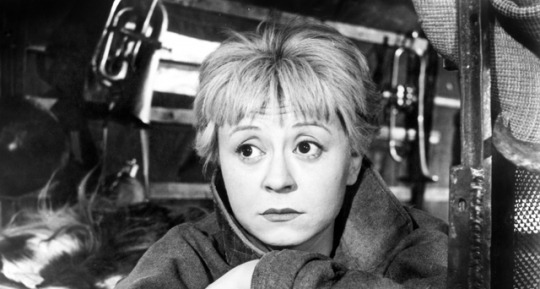

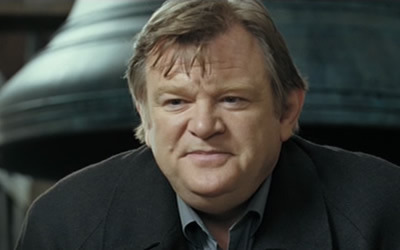
300 Favorite Performances: #210-201
210. Daniel Kaluuya, as “Chris Washington,” in Get Out (dir. Jordan Peele, 2017)
209. Emil Jannings, as “The Hotel Doorman,” in The Last Laugh (dir. F. W. Murnau, 1924)
208. Rachel Weisz, as “Sarah Churchill,” in The Favourite (dir. Yorgos Lanthimos, 2018)
207. Josh O’Connor, as “Johnny Saxby,” in God’s Own Country (dir. Francis Lee, 2017)
206. Eleanor Parker, as “Baroness Elsa Schrader,” in The Sound of Music (dir. Robert Wise, 1965)
205. Kim Stanley, as “Myra Savage,” in Séance on a Wet Afternoon (dir. Bryan Forbes, 1964)
204. Youssef Chahine, as “Qinawi,” in Cairo Station (dir. Youssef Chahine, 1958)
203. Giulietta Masina, as “Gelsomina,” in La Strada (dir. Federico Fellini, 1954)
202. Charlize Theron, as “Mavis Gary,” in Young Adult (dir. Jason Reitman, 2011)
201. Brendan Gleeson, as “Ken,” in In Bruges (dir. Martin McDonagh, 2008)
(300-291) (290-281) (280-271) (270-261) (260-251) (250-241) (240-231) (230-221) (220-211)
#300 performances#daniel kaluuya#get out#emil jannings#the last laugh#rachel weisz#the favourite#josh o'connor#god's own country#eleanor parker#the sound of music#kim stanley#seance on a wet afternoon#youssef chahine#cairo station#giulietta masina#la strada#charlize theron#young adult#brendan gleeson#in bruges
11 notes
·
View notes
Link
Chapters: 1/1
Fandom: God's Own Country (2017), God's Own Country
Rating: Explicit
Warnings: No Archive Warnings Apply
Relationships: Gheorghe Ionescu/Johnny Saxby
Characters: Gheorghe Ionescu, Johnny Saxby, Martin Saxby, Deirdre Saxby
Additional Tags: Explicit Sexual Content, Explicit Language, One Shot
#god's own country#ao3fic#johnny x gheorghe#gheorghe x johnny#johnny saxby x gheorghe ionescu#gheorghe ionescu x johnny saxby#johnny saxby#gheorghe ionescu#christmas fic#gift fic
13 notes
·
View notes
Link
Chapters: 1/?
Fandom: God's Own Country, God's Own Country (2017)
Rating: Explicit
Warnings: Graphic Depictions Of Violence
Relationships: Gheorghe Ionescu/Johnny Saxby
Characters: Gheorghe Ionescu, Johnny Saxby, Martin Saxby, Deirdre Saxby, Original Male Character(s), Original Female Character(s)
Additional Tags: Explicit Sexual Content, Explicit Language, Mental Health Issues, Alcohol Abuse/Alcoholism, Firefighter AU
Summary:
Firefighter Johnny Saxby keeps to himself most of the time. When Gheorghe Ionescu arrives at the station on a transfer, will Johnny be able to hold up the walls he’s worked so hard to build around himself?
6 notes
·
View notes
Text
BIOGRAPHY…THE CHRONOLOGY, THE FACTS, AND ACKNOWLEDGEMENTS :
Born in Te Awamutu, 27/5/58. Son of Mary (nee Mullane) and Richard Finn. The youngest of four children, Carolyn, Tim (originally Brian) and Judy. Taught by nuns at St Patrick’s Primary, boarded at Sacred Heart Boys College for a little over a year before switching to co’ed Te Awamutu College for the rest of my high school days. I remember two good English teachers, Ron Martin and Marion Evans, as early inspirations and motivators.
I was also inspired by my older brother Tim to learn “Lara’s Theme” on piano at the age of 7. A few years later he joined Split Enz with talented painter and musical savant Phil Judd in 1972. Such a highly original band was a rare thing in NZ and their refusal to tread the usual path, not playing pubs, writing sprawling complex songs, embracing theatrics, costumes and makeup set my imagination free.
Also influenced by the singer-songwriters of the time – Neil Young, Cat Stevens, Elton John, David Bowie, Carole King – I found an outlet to sing and play some of these songs on piano and acoustic in the local folk club, learning much along the way about traditional folk from folk club stalwarts the Saxby family. I won a talent quest at Beach Resort Mt Maunganui, singing “Coming Into Los Angeles” and “You’ve Got A Friend”. Also won school music prize at Sacred Heart singing “Carolina On My Mind” with the McHardy Brothers.
Wrote my first song at the age of 15, “Late In Rome”, with an experienced musician from the folk club – Rod Murdoch.
I was asked to join Split Enz in April 1977 after Phil Judd departed. I wore glasses without lenses and jumped around a lot for the first year to cover my obvious lack of skill. Soon after, however, I wrote the song “I Got You” which went on to become a big hit so all turned out pretty well. After four more albums, playing alongside brother Tim, the very talented Eddie Rayner, Noel Crombie and Nigel Griggs, the band eventually broke up in 1984.
I formed Crowded House immediately following with drummer Paul Hester and Nick Seymour. Our first album, recorded in Los Angeles with producer Mitchell Froom, eventually went on to become successful, generating two top ten US hits – “Don’t Dream It’s Over” and “Something So Strong”. Crowded House went on to make four albums. In 1989 we took on a valuable fourth member, Mark Hart, and thereafter, following much touring, enjoyed good success in the UK and Europe, becoming known as a very entertaining and spirited live band. Back home in Australia and NZ our songs seemed to make deep connections across generations. The band eventually broke up in 1996 after recording what we regarded as our finest album, Together Alone, with producer Youth. We performed a memorable free and final concert in front of 150,000 people in front of the Sydney Opera House.
Soon after, I co-produced with Tchad Blake an album with brother Tim, upon which we played all the instruments. Although sales for this Finn Brothers project were modest, this album has become a fan favourite.
I then went on to make my first solo album Try Whistling This with Marius De Vries. Another solo album followed, One Nil / One All, recorded with Tchad Blake and featuring Wendy and Lisa (talented collaborators of Prince in his best period) and Jim Keltner.
A one off flight of fancy project unfolded around the same time, the year 2001 – “7 Worlds Collide” which brought together on stage friends and enthusiasts Ed O’Brien, Phil Selway, Johnny Marr, Ed Vedder, Sebastian Steinberg and Lisa Germano for a series of five shows in Auckland NZ which was filmed, recorded and released as a charity record for the benefit of Medicins Sans Frontieres.
This project was reprised seven years later with the addition of four members of Wilco and local music luminairies Bic Runga and Don McGlashan. A double album was recorded in three weeks and released for the benefit of Oxfam. Both 7 Worlds films have recently been released on DVD.
I worked again with my brother Tim in 2004 on a Finn Brothers record alongside Jon Brion and Sebastian Steinberg with production assistance from Mitchell Froom. It was mixed once again by rocket scientist and frequent collaborator Bob Clearmountain.
Since then, Crowded House have been revived with a feeling of things left unsaid in the aftermath of losing dear friend and original member Paul Hester. Two further albums have been recorded with production contributions from Ethan Johns, Steve Lillywhite and Tchad Blake and Jim Scott.
Three years ago, following a series of late night jams with my beautiful wife Sharon on bass and me on drums, we recorded an album under the name Pajama Club alongside respected NZ songwriter Sean Donnelly.
I am currently recording an album scheduled for release mid to late 2013 with producer Dave Fridmann and featuring my sons Liam on guitar and Elroy on drums, together with Sharon on bass. I have also written and performed with Elroy and Liam “The Song of the Lonely Mountain” for the end credits of the first Hobbit movie.
In Feb/March I embarked on a series of live dates around Australia performing on stage together with old friend and much loved Australian songwriter Paul Kelly.
All through the years I have loved performing on stage and am happy to have become known for spontaneous and relaxed evenings, always looking for a chance to step into the unknown. That’s where all the good stuff happens in my experience. My audiences know they have a good chance to influence proceedings…
Neil Finn
0 notes